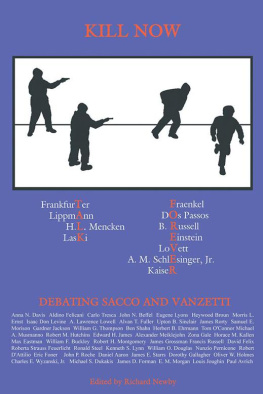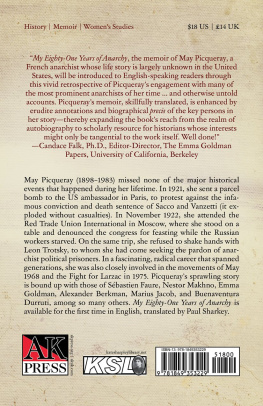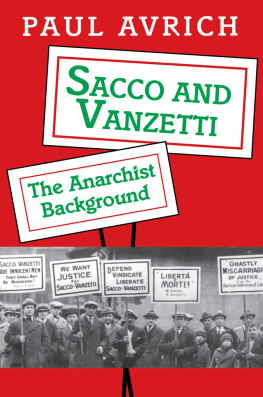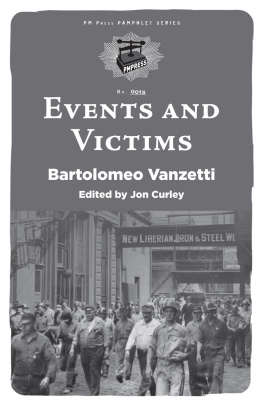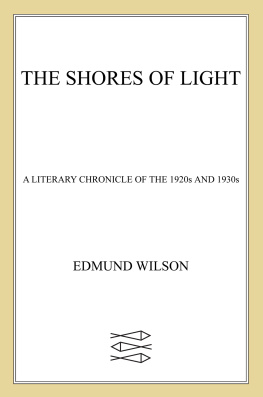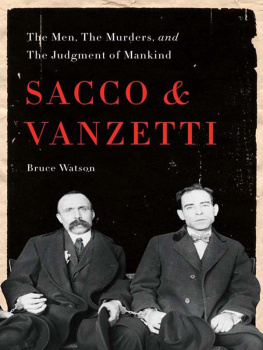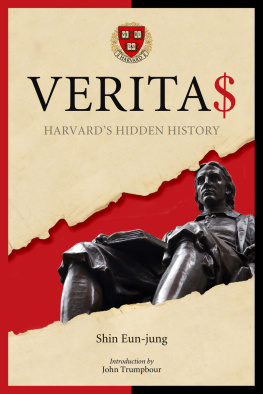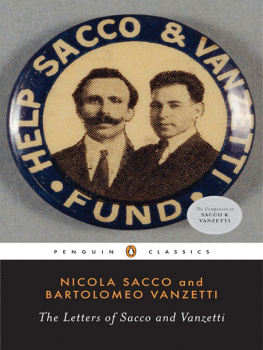KILL NOW, TALK FOREVER

DEBATING SACCO AND VANZETTI
Anna N. Davis Aldino Felicani Carlo Tresca John N. Beffel Eugene Lyons Heywood Broun Morris L. Ernst Isaac Don Levine A. Lawrence Lowell Alvan T. Fuller Upton B. Sinclair James Rorty Samuel E. Morison Gardner Jackson William G. Thompson Ben Shahn Herbert B. Ehrmann Tom OConnor Michael A. Musmanno Robert M. Hutchins Edward H. James Alexander Meiklejohn Zona Gale Mme. Curie Max Lerner David Starr Jordan Roger Baldwin Herbert G. Wells Anatole France John Galsworthy John Dewey Edmund Wilson Bernard DeVoto Bennett Cerf Malcolm Cowley William A. White Jane Addams George Seldes James T. Farrell John Dever Robert P. Weeks Katherine A. Porter Edna St. Vincent Millay Maxwell Anderson Louis Joughin Edmund M. Morgan Bruce Bliven Sylvester Gates Horace M. Kallen Max Eastman William F. Buckley Robert H. Montgomery James Grossman Francis Russell David Felix Roberta Strauss Feuerlicht Ronald Steel Kenneth S. Lynn William O. Douglas Nunzio Pernicone Robert DAttilio Eric Foner John P. Roche Daniel Aaron James E. Starrs Dorothy Gallagher Oliver W. Holmes Charles E. Wyzanski, Jr. Michael S. Dukakis James D. Forman Robert M. La Follette Paul Avrich
Edited by Richard Newby
AuthorHouse LLC
1663 Liberty Drive
Bloomington, IN 47403
www.authorhouse.com
Phone: 1-800-839-8640
Copyright 2014 by Richard Newby. All rights reserved.
Revised edition, AuthorHouse, 2003, 2006, 2010, 2012, 2014.
First published by 1st Books, 2000.
No part of this book may be reproduced, stored in a retrieval system, or transmitted by any means, electronic, mechanical, photocopying, recording, or otherwise, without written permission from the author.
Published by AuthorHouse 06/06/2014
ISBN: 978-0-7596-0792-7 (sc)
ISBN: 978-1-4208-4393-4 (hc)
ISBN: 978-0-7596-0791-0 (e)
Library of Congress Control Number: 2003094255
Edited by
Richard Lee Newby
Associate Professor of English Emeritus
Illinois State University

CONTENTS
This book is for
Marilyn Provart Newby, professor/wife
Our children: John, David, Kent, Jane
Their spouses: Pam, Gail, Kelly, Tim
Our granddaughters: Sarah, Diana, Helen, Katherine, Kendall, Kelsey
Our grandson: Kolin Backues Newby
And their contemporaries
All 21st-century jurors
In memory of Gail South Newby
In memory of Marilyn Provart Newby
whose mosaic mural graces the west wall of ISUs Bone Student Center
All of Us Under a Rainbow
A Very Special Arts Festival 1982-85
Douglas Linder, Elmer Powell Peer Professor of Law, UMKC School of Law, permits his words of October 13, 2010, to be quoted. Dr. Linder wrote: In my opinion, your work comes closest of the S-V books to capturing the truth of the controversial case.
Reports on Scholarship of Richard Newby
Richard Newby is a first-rate scholar. He does not deal in reinterpret-tations, which seems to be a popular way of writing about historical events. He gets to the center of subjects. Robert Ferrell, Distinguished Professor Emeritus of History, Indiana University, Bloomington.
Kill Now, Talk Forever has many of the better aspects of a case book, with its excellent research/study/writing topics and its very useful transcripts. I could see it being adopted by school libraries as a basic reference text for this fascinating topic. Anthony Arthur, Professor of English Emeritus, California State University at Northridge, author of Radical Innocent: Upton Sinclair (2006) and five other books.
In Kill Now, Talk Forever , Richard Newby, Associate Professor of English at Illinois State University, opts not to interpret the case for and against the defendants. He chooses instead to reprint the transcript of the entire Dedham trial of 1921 and invites the reader to make a reasoned decision about whether the men were guilty Newby then poses essay questions aimed at teasing out the intricacies of the case As a piece of historical scholarship, Newbys volume is impressive. Jonathan Pearson, TLS , May 22, 2009, p. 29.
Anonymous referee peer reviews Sleuthing Sacco-Vanzetti: Sidelong History and Judge Wyzanskis Opinion, an article Newby submitted to Linda Cooke Johnson, editor of The Historian (Michigan State University) on 20 October 1997: The article reveals deep research in the relevant records and a masterful command of the details of the case. This piece is obviously the product of a long, intense engagement with this subject. Moreover, it is an article obviously motivated by a desire to get to the facts at issue, stripping away the detritus of decades of myth-making.
The controversial Sacco and Vanzetti case is thoroughly explored in Kill Now, Talk Forever: Debating Sacco and Vanzetti , edited by Richard Newby (2002). George Brown Tindall and David Emory Shi, authors of America: A Narrative History , 7th edition, W. W. Norton & Company, 2007, p. 990.
PERSPECTIVES
Tell your friends, write to your congressman, to the political bosses of your district, to the newspapers. Demand the truth about Sacco and Vanzetti. John Dos Passos, Facing the Chair .
The execution of Sacco and Vanzetti would cry out against us for centuries to come just as the witchcraft executions have. Samuel Eliot Morison, Harvard historian. Letter to William G. Thompson. The Thompson Papers, Harvard Law School Library.
I know of no canon of legal etiquette or of common sense that counsels against a disinterested and scientific discussion of a case. Felix Frankfurter, Professor of Law, Harvard Law School. Illinois Law Review , December 1927.
I have no doubt in my own mind that they were wholly innocent. I am forced to conclude that they were condemned on account of their political opinions and that men who ought to have known better allowed themselves to express misleading views as to the evidence because they held that men with such opinions have no right to live. Letter to Gardner Jackson. 28th May 1929. The Autobiograph y of Bertrand Russell 1914-1944. Vol. 2. Bertrand Russell. British pacifist, mathematician, philosopher.
I did the Preface [to Appels first volume of the transcript] with the hope that students of political science and law would be encouraged to mine the record so as better to understand what went on at that trial. William O. Douglas, Associate Justice of the United States Supreme Court. Letter to Ramsey Clark. June 25, 1970. The Douglas Letters .
The question of their guilt or innocence is still being debated, but that they were tried in an atmosphere of hysteria before a biased court is indisputable. Daniel Aaron, Professor of English, Harvard University. American Heritage , July/August 1996.
[E]ven a genius will, on occasion, be wrong . Keep in mind that whenever someone presents an opinion about the truth of an issue or the wisdom of an actionthat is, whenever someone presents a judgmentyou not only have a right to judge his [her] view by the evidence. You have an obligation to do so. Vincent Ryan Ruggiero, The Art of Thinking (1984), p. 64.
QUEENS COLLEGE, CITY UNIVERSITY OF NEW YORK
MemoPaul Avrlch to Richard Newby, 11/4/92
WALL STREET EXPLOSION: MARIO BUDA
Comments: Thanks for your letter of October 28. My book does not mention Gambera because he does not enter into the story until after the arrest of Sacco & Vanzetti, where the book ends. I had contemplated writing a sequel dealing with the years from 1920 through the trials and appeals and executions, as well as the aftermath, but I doubt that I will ever do it, mainly because, after many years of research, I do not know whether Sacco and Vanzetti (or Sacco only) were guilty of the crime for which they paid the ultimate penalty. My reliable source about Buda and the Wall Street explosion is an old Italian anarchist, whose name I am not at liberty to divulge. Robert D'Attilio has not published any books. He is not a professional historian with an academic position. But he has published two or three articles on the Sacco-Vanzetti case (see my bibliography) on which he has been working for about 25 years. Best wishes, Paul Avrich [Avrich died Feb. 16 2006.].
Next page
